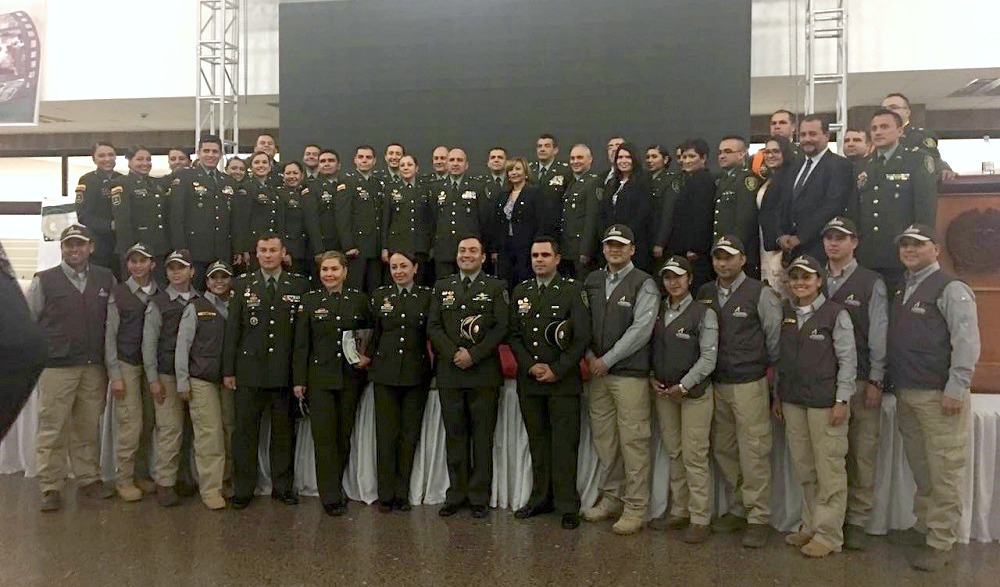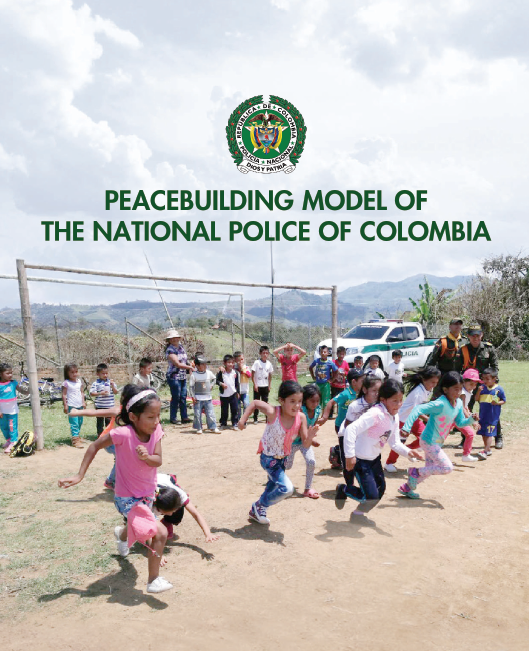Peacebuilding Model of the Colombian National Police - A long-term commitment for peace

Signing the peace agreement in Colombia put an end to one of the world’s longest armed conflicts and marked the beginning of a process to build lasting and sustainable peace, which requires the involvement and commitment of all public institutions and society as a whole. The National Police of Colombia is a key institution in this peacebuilding process, due to its dual role to guarantee security and peaceful coexistence, and at the same time to help prevent violence.
On April 2016, the Colombian National Police created the Police Unit for Peacebuilding – UNIPEP –to contribute to the post-conflict scenario in the country. This visionary commitment took place long before the agreement was signed, in order to define its institutional responsibility towards the implementation of the Final Peace Agreement. From that moment on, a collaborative work began between UNIPEP, Interpeace's Regional Office for Latin America and partner organization Alianza para la Paz, with the support of the governments of Switzerland and the Netherlands. This alliance gave rise to the Peacebuilding Model of the National Police, launched on May 3, 2017.

Interpeace in Colombia
Building peace in Colombia, entails a significant challenge for the National Police to transform itself into an institution that guarantees the necessary conditions for the exercise of all rights and freedoms. From a peacebuilding perspective, signing an agreement that ends the conflict is only the first step in a long process to build lasting peace.
Therefore, in order to adjust to the new challenges derived from the post-conflict scenario, the National Police of Colombia have transitioned to fostering and enabling a peaceful transformation of conflicts, as part of its institutional policies. For this reason, supporting the Colombian National Police was strategically valuable for Interpeace and Alianza para la Paz. Working with the Colombian National Police contributes to the non-recurrence of armed violence and reduces the emergence of new forms of violence and criminality.
Peacebuilding Model
The Peacebuilding Model is the result of a broad and participatory consultation process at all levels of the police, where the responsibilities and the commitments of the institution were identified based on the six points of the Final Peace Agreement. Through this systematization process, the guidelines that the Police should implement were established to ensure a compliance with their responsibilities towards the Final Peace Agreement and their contribution to building lasting peace. The Model has an Implementation plan that contains 26 projects, 22 actions and 12 recommendations, which will be deployed at the institutional level of the Police, the defense sector (military forces) and with other State institutions linked to the implementation of the Final Peace Agreement.
The Peacebuilding Model of the National Police lays the groundwork for a long-term transformation process aimed at adapting the institution to the new challenges posed by the post-conflict scenario. Therefore, once the Model has been institutionalized, Interpeace and Alianza para la Paz, will accompany UNIPEP in the challenge of monitoring and evaluating the effective implementation of the projects, actions and recommendations of this model. This also implies the technical support for the deployment in the defense and interinstitutional sectors, during the implementation of the Peacebuilding Model.

Launch of the Peacebuilding Model of the Colombian National Police. Bogotá, Colombia. Photo credit: Interpeace
Launch of the Peacebuilding Model
On Wednesday May 3, 2017, within the framework of the project "Strategic Peacebuilding Route for the Colombian National Police" implemented by Interpeace and Alianza para la Paz, UNIPEP gave a presentation of the work developed in its first year of management, which included the institutional presentation of the Peacebuilding Model of the Colombian National Police.
This event was chaired by Major General Jorge Hernando Nieto Rojas, Director of the National Police of Colombia, and was attended by different representatives and commissioners of Ministries, diplomats, public and private entities, among other guests.























